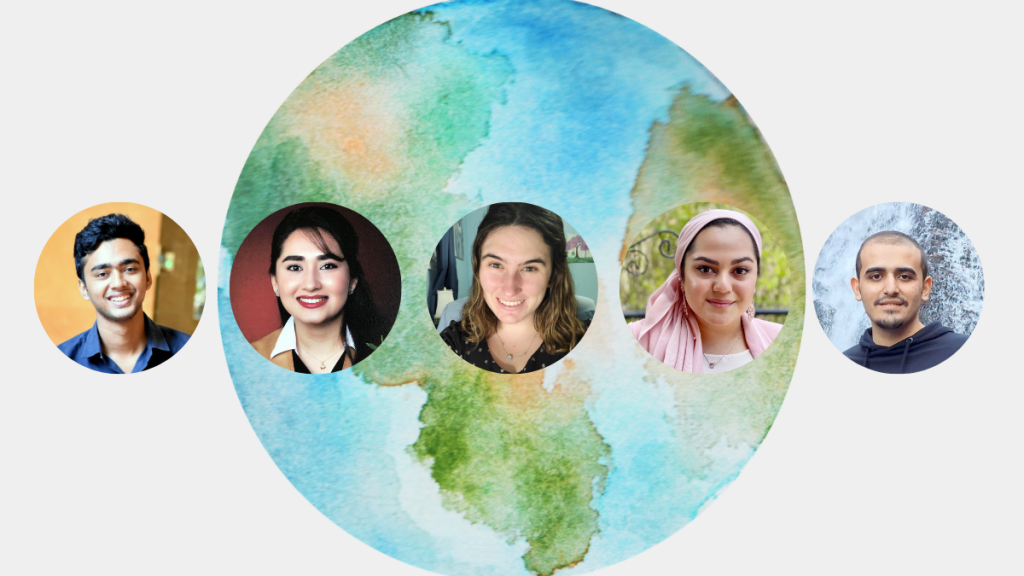Student-led products combine innovation and sustainability

This Earth Day, celebrate by learning more about three McMaster student ideas that all aim to recover the earth by doing things differently.
Today marks Earth Day, an opportunity to share innovative ideas and new research that will create a healthier and sustainable planet. McMaster recognizes the important role universities have to play in this work through initiatives that tie into the United Nations’ Sustainable Development Goals (SDGs). Beyond the university’s commitment, students are also leading the way by leveraging their fields of study to create projects that prioritize sustainability.
This Earth Day, celebrate by learning more about three McMaster student ideas that all aim to recover the earth by doing things differently.
These projects have each earned a place in the final round of Universitas 21’s RISE (Real Impact on Society and Environment) international competition, which showcases student-led projects in sustainability and social innovation that tie into one or more SDGs.
“These projects demonstrate both the concern that students have for the sustainable future of our planet and their ingenuity in approaching the challenges” says Peter Mascher, McMaster’s vice-provost, international affairs. “McMaster’s membership in Universitas 21 provides the opportunity for them to test their ideas in an international forum.”
As part of the competition showcase, which is open until May 1, you can pledge your support for any of the projects below if you have expertise to share or support to offer.
Yayra-Si Youth Foundation (YSYF)’s Banana Fibre Bag
Marwah Sadat – MSc. Global Health, Year 1

The idea: In Ghana, polyethylene bags significantly threaten environmental health and safety by clogging drains, causing fatal flooding, and releasing toxic fumes when burned. Yayra-Si Youth Foundation (YSYF)’s Banana Fibre Bag, a biodegradable paper bag manufactured from banana/plantain stems and leaves, is a potential solution. This product will support women and youth residing near the manufacturing site in rural Ghana by providing capacity building, employment, and banana/plantain foodstuffs.
Environmental impact: The bag will be similarly priced to plastic and paper alternatives, yet more durable, reusable, locally sourced, and environmentally friendly. The impact on the environment is significant in terms of waste and air pollution reduction, as the product is made from waste products, and can be eliminated without burning.
The AmandaMask
Amanda Tomkins – iBioMed, Year 4

The idea: While N95 masks provide a high level of particle filtration, shortages of sizes and unique facial features leave health-care workers vulnerable as air can get through gaps between the mask and the skin if not fitted correctly. The AmandaMask creates an airtight seal and more comfortable fit, allows for the use of different sizes/shapes of N95 masks, and is reusable.
Environmental impact: The silicone will provide a cushion and seal lacking in current N95 masks, while the material can be easily sterilized, making the mask economically and ecologically responsible.
The SecureT wallet
- Tara Sabzvari – BSc., Life Sciences ’20 graduate and Continuing Education student
- Asif Khan – MSc., Electrical and Computer Engineering, Year 1
- Sajjad Rashidiani – MSc., Electrical and Computer Engineering, Year 1

The idea: The SecureT wallet is a free digital wallet that patrons would get when they open a bank account. Once the wallet is activated using a one-time password, the owner could unlock the wallet in future using their fingerprint biometrics. The SecureT wallet would store all credit and debit card banking information digitally in one place.
Environmental impact: This product is similar to other digital wallets, from Apple Pay to NFC payment devices, but with enhanced security features and made using sustainable materials, such as hemp, to ensure the wallet is durable and eco-friendly. The goal of this product is also to minimize the need to use plastic credit cards, diverting waste from landfills and mitigating climate change.
For more on the RISE showcase and to pledge your support for any of the student-led projects, please visit https://universitas21.com/Rise-202021-showcase


